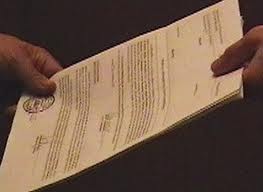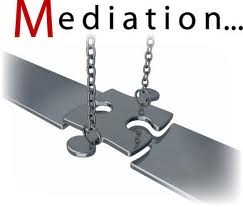NOW ACCEPTING NEW CLIENTS.
The Texas Divorce Process
A Brief Description of the Divorce Process in the State of Texas
This web page outlines seven basic steps in the divorce process in Texas. Each and every divorce is different, however, because each and every marriage is different. For example, not every divorce is going to need a temporary orders hearing. (Here is why everyone does not need to spend the time and money to get Temporary Orders drafted by your attorney and signed by a judge: You can be divorced in Texas in as little as 60 days. If we expect the divorce to be finalized in a relatively short time, that reduces the need to spend the time and money to get a judge to listen to some evidence at a temporary orders hearing and to sign some temporary orders that will only be effective for a couple of months until the final divorce decree is signed by the judge. Temporary orders become completely irrelevant once a final divorce decree is signed by a judge.)
Not every divorce case is going to need an extensive discovery phase since frequently both spouses already have a real good idea of what all the marital assets and debts are.
You should seek the advice of an experienced attorney if you are thinking about filing for divorce. Please feel free to contact Ken Crain at 512-630-3745 to schedule a divorce consultation. I will gladly speak to you on the phone for a few minutes about your situation for no charge. If you prefer to come in to my office, I offer divorce consultations in my office for $250 for up to one hour of face to face discussion in my office.
Residency requirements. Before filing a petition for divorce, at least one spouse must be a Texas resident for at least six months and be a resident of the county in which he/she is filing the divorce petition for at least 90 days.

Sometimes the parties have reached total agreement on all relevant issues before the divorce petition is even filed. At the other extreme, sometimes the parties have not even seriously begun to discuss the important issues of dividing up their property and what to do about child custody, child support, child visitation, etc. If you are certain that you want a divorce, there is no need to wait until you have reached complete agreement with your spouse before filing a divorce petition. (Texas requires a "cooling off" period of at least sixty days between the date a divorce petition is filed and the earliest date that a judge can legally grant you a divorce. Most people use some or all of the required "cooling off" period to complete the negotiations in a divorce case and to get both spouses' signatures on an Agreed Final Decree of Divorce.)

You will save a lot of money by avoiding the need to get your spouse served by a process server. Although most process servers only charge around $75 for their services, your attorney will usually spend an extra 2-3 hours of his/her time dealing with your case if your spouse needs to be served by a process server. Because most attorneys charge $300 or more per hour, having to use a process server will add a lot of expense to your case.


Formal Discovery can be much more involved by requiring one party to provide detailed information under oath. Common discovery methods are written questions (interrogatories), preparation of inventories, production and inspection of documents, and depositions of one or both spouses and/or other witnesses. The discovery process helps your lawyer learn more about your case, allowing for full disclosure of particular facts, such as income and liabilities of the parties, value of certain marital assets and retirement accounts, and facts relevant to establish child custody and child support. There are a variety of ways to conduct discovery and your attorney should select the best method for your unique situation. Not every case requires the full use of the formal discovery process. You and your attorney will decide on the need for formal or informal discovery, depending upon your situation and how cooperative your spouse is.

Typically each party will be responsible for paying for half of the cost of the mediator. (A mediator usually charges around $300 per hour.) Mediation of a family law case will typically last for at least 3 to 4 hours. If your situation is more complicated, the mediation may last for an entire day. You should be prepared to pay the mediator by personal check immediately at the end of the mediation session.
On occasion the parties, through their attorneys, can negotiate the case to a complete final agreement without the necessity of hiring a mediator and doing a formal mediation. For example, one of the attorneys may draft a proposed final decree of divorce and get his/her client to approve it. They then forward the proposed divorce decree to the other side to see if they agree to it in order to narrow the disputed issues. The proposed decree may go back and forth a couple of times to reach a complete settlement.
(I have had many settlement meetings in family law cases where both spouses and their attorneys simply sat down around a conference table or a dining room table with all their paperwork and successfully worked out a settlement. We all turned off our cell phones and spent the time needed to discuss and negotiate and settle all issues.) The negotiation and/or mediation process allows clients to determine the ultimate resolution of their case. That way you avoid the unknown outcome that is always present any time a judge or jury is asked to make decisions in a case (after the parties have failed to reach total agreement on their own).
Another way to cut mediation costs is to take advantage of Settlement Week that is usually held every September and February in Williamson County. If you have a Williamson County divorce that needs some mediation, this is a cheap way to do that because local attorneys volunteer their time to serve as mediators during Settlement Week which is held twice a year. This way you will only have to pay for your own attorney's time and you will save the cost of paying for a mediator.
Step six. Final Hearing or Trial - Most family law cases are settled by the parties before a final hearing or trial is needed. If an agreement cannot be reached between the parties, then the case will be ultimately decided by a judge or jury. The overwhelming majority of disputes in family law cases are decided by the judge of the court that the case was filed in. (The court is randomly determined by the district clerk when the original divorce petition is filed with the district clerk).
It is extremely rare for an attorney to advise the client that spending the time and money to have a jury (rather than the judge) decide the disputed issues will be in the best interest of the client. Most final hearings last an hour or two in front of a judge. All family law judges will pressure you and your attorney to reach agreement on as many issues as you can in order to get the hearing to last the shortest possible length of time.

Contact the Law Office of Ken Crain for help with your divorce.
My goal as your attorney will be to finalize your divorce as quickly as possible and to get the best results possible for you. I recognize that the cost of a divorce is frequently a major concern, and I will explain the costs to you and will do my best to minimize your legal expenses while obtaining the best results we can get for you in your specific situation.
I believe in being creative to resolve disputes and move cases to faster conclusions so that everyone can get on with their lives. If you are struggling with a divorce or other difficult legal problem in Williamson County or elsewhere in Central Texas, I can help protect your interests and your future. Call 512-630-3745 to speak to Ken Crain on the phone about your problem and/or schedule an office appointment.

